Does a loud noise occur each time you switch between the zones of your sprinkler system? Does it worry you that this sound could be an indication of a larger problem? If so, know that the good news is – there’s a fix! In this blog post, we will explain why this issue occurs and provide step-by-step instructions to help you resolve it quickly and easily. Read on to learn more about how to repair the root cause of your noisy sprinkler system without needing costly professional repairs.
Why Do Sprinklers Make a Loud Noise?
Sprinkler systems are a great way to keep your lawn looking lush and green. But if you’ve ever heard a loud noise coming from yours when changing zones, you might be wondering why this is happening.
The culprit behind the noise is most likely an air chamber that’s built into the sprinkler system. When water moves through the pipes, it can get trapped in the chamber, and when enough pressure builds up due to changes in zone settings or other factors, it causes a loud bang as the air escapes. [1]
Types of Noise and Their Meaning
There are various reasons why your sprinkler system might generate a loud noise while switching zones. It’s important to identify what type of noise you’re hearing in order to determine the best course of action for fixing it. Here are some common types of noise that can occur with a sprinkler system and their meaning:
- Clicking or Snapping – This sound indicates an issue with the solenoid valve, which controls water flow through the sprinkler system. The most likely cause is a valve that has become corroded or clogged. To fix this problem, use a liquid cleaner or brush to clear away any debris that might be blocking the valve opening. You may also need to replace the valve entirely.
- Thumping – This sound is typically caused by excessive water pressure in the system. The best way to address this issue is to install a pressure-reducing valve, which will help regulate the flow of water and reduce the thumping noise.
- Rattling – A rattling noise indicates that your sprinkler heads are vibrating from too much pressure or an obstruction in the line. To fix this problem, check your pressure regulator and clean out any debris that may be blocking the nozzles. You may also need to adjust or replace your sprinkler heads if they are damaged or worn out.
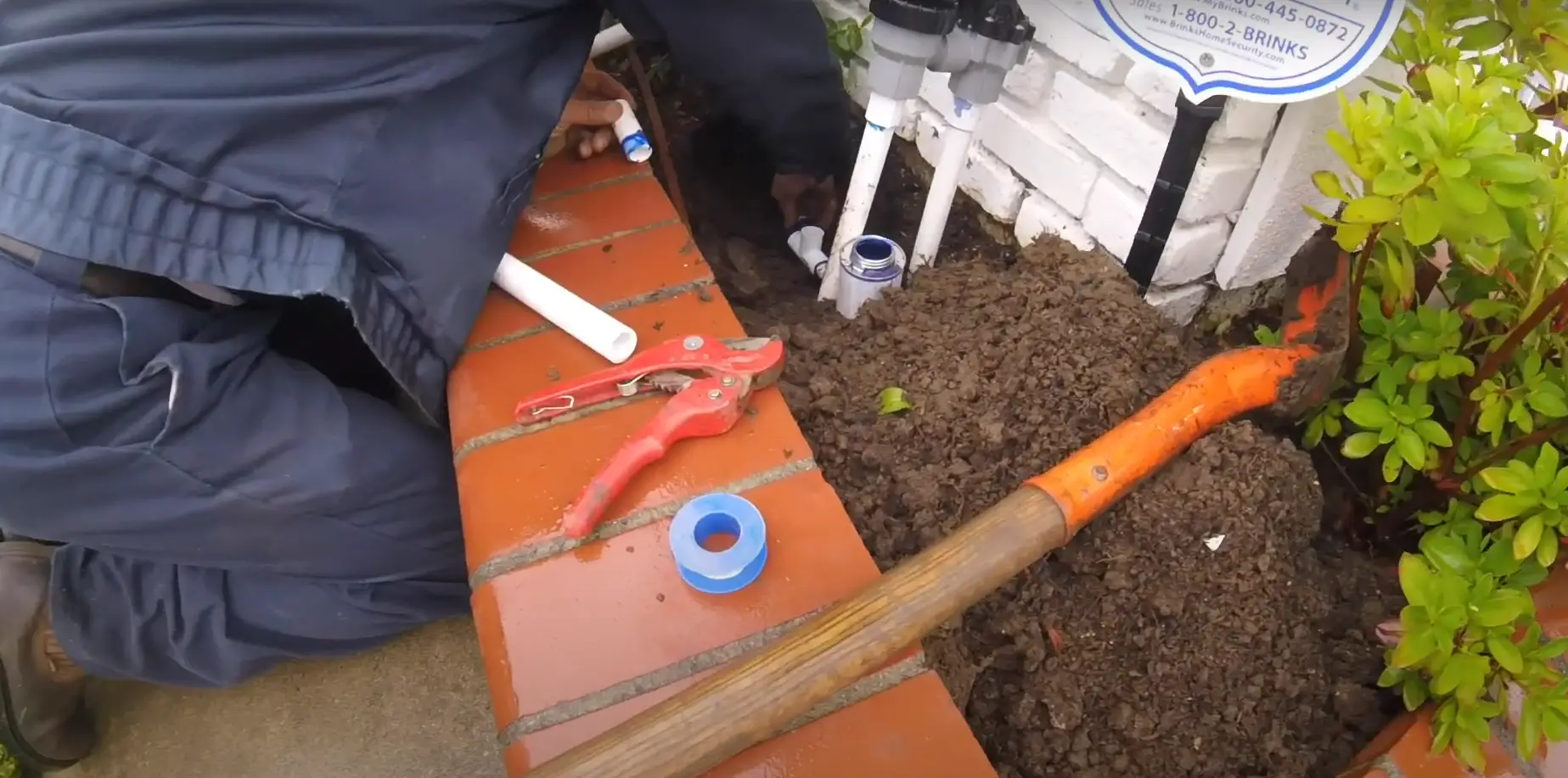
By knowing what type of noise your sprinkler system is making when changing zones, you can more easily identify the cause and take steps to get it fixed. If you’re having trouble diagnosing the issue, contact a professional sprinkler system repair technician for assistance. They will be able to diagnose the problem and provide you with an effective solution. [2]
How to Fix?
Several factors could be causing your sprinkler system to make a loud noise when switching zones.
The first and easiest solution to try is to check for debris in the system that may be causing blockages or restrictions. Sand, dirt, and other material can get into the system and cause blockages which can create vibration when the zone changes. Cleaning out any obvious debris from the system should fix this problem.
Finally, your sprinkler system could be making noise due to worn out parts. This is usually caused by wear-and-tear from normal use over time. Common culprits include seals, gaskets, O-rings, bushings, and valves. To fix this problem, you’ll need to replace any worn out parts with new ones. It can also be helpful to lubricate all moving parts in the system on a regular basis as well.
By following these steps and troubleshooting common causes, you should be able to fix the issue and get your sprinkler system running smoothly again.
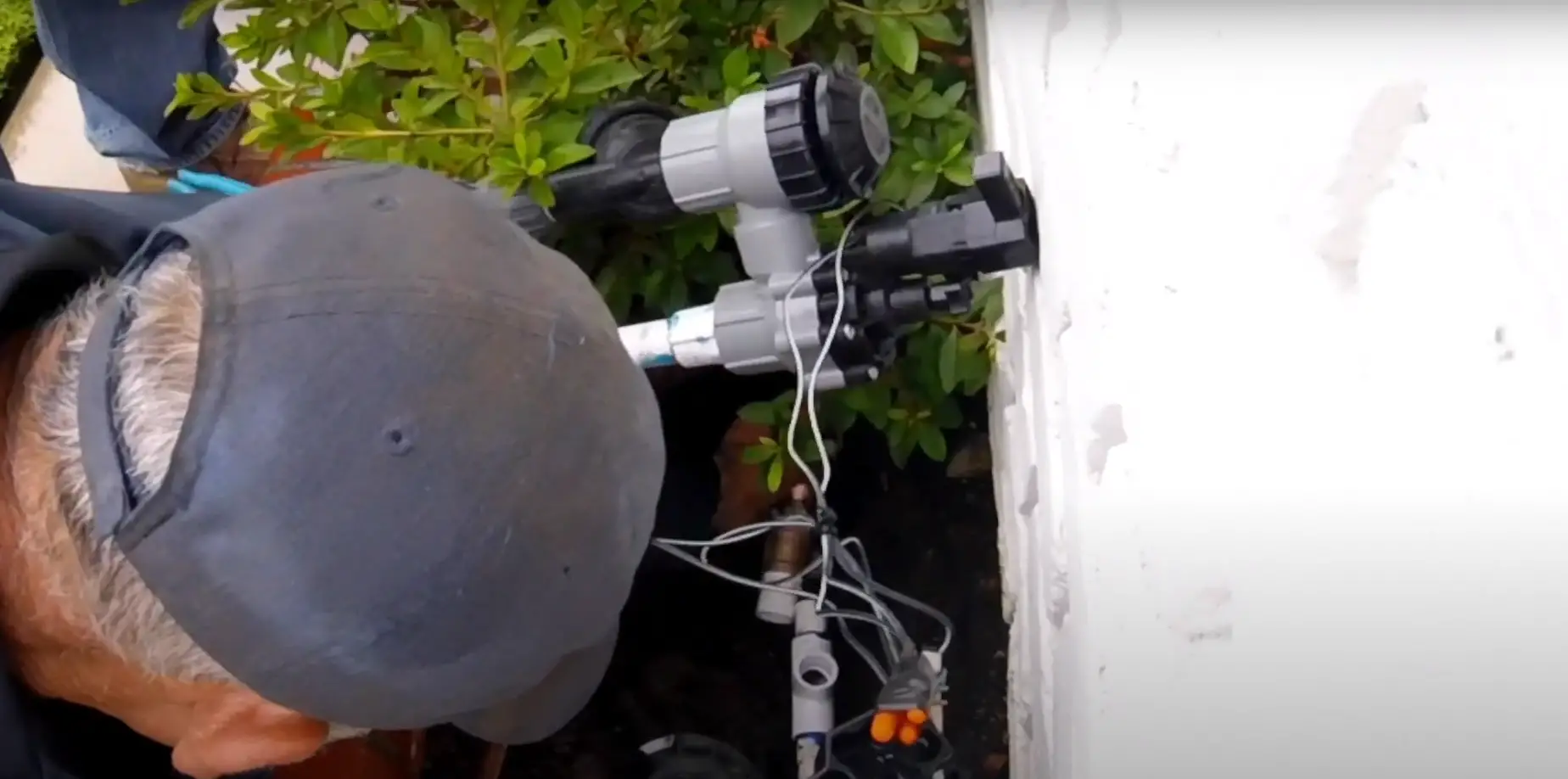
How Do You Clean The Inside Of A Sprinkler Head?
Cleaning the inside of a sprinkler head is an important part of maintaining your sprinkler system. A clogged or dirty sprinkler head can cause a variety of problems, such as decreased water flow, and noisy operation when switching between zones. Fortunately, cleaning the inside of a sprinkler head is fairly easy and does not require any special tools or supplies.
To clean the inside of a sprinkler head, you will need:
- A screwdriver
- A plastic container
- White vinegar
- Warm water
- An old toothbrush (optional)
First, remove the cap on top of your sprinkler head with a screwdriver. Place the plastic container beneath your sprinkler head to catch any water that is released. Next, pour some white vinegar into the sprinkler head and let it sit for a few minutes. This will help loosen any dirt or mineral deposits inside your sprinkler head. [3]
Next, fill the plastic container with warm water and pour it into the sprinkler head several times until all of the vinegar has been flushed out. You may also choose to use an old toothbrush to scrub away any stubborn deposits inside your sprinkler head. Lastly, replace the cap on top of your sprinkler head and run some tests in each zone to make sure everything is working properly.
By taking these steps to clean inside your sprinkler heads, you can help ensure that your sprinklers are running efficiently and quietly. Cleaning the inside of a sprinkler head doesn’t take much time or effort, but it can make all the difference when it comes to keeping your system in working order.
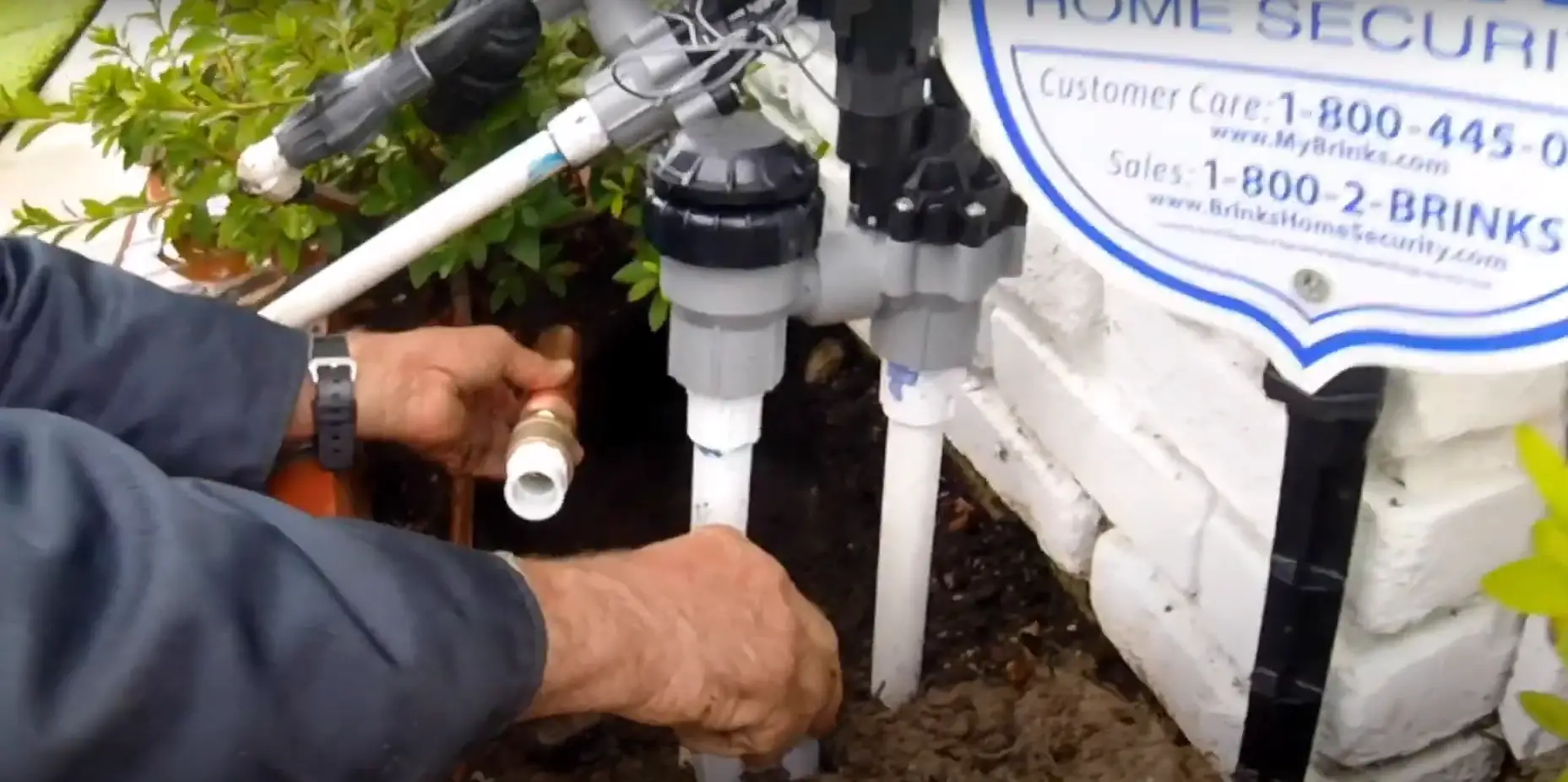
Is A Water Hammer Normal?
No, a water hammer is not normal. A water hammer is caused by a sudden pressure increase, and usually occurs when sprinkler zones are changed. It can be identified by a loud banging sound coming from the pipes, which can be quite disconcerting.
The good news is that a water hammer is generally easy to fix. The most common solution involves installing a water hammer arrestor on the affected pipe. This device helps absorb the shock waves created when too much water rushes through your pipes, reducing or eliminating the noise. Alternatively, you can utilize air chambers that are installed in line with the plumbing and filled with air to help cushion any sudden changes in pressure.
In any case, don’t let a noisy sprinkler system scare you away from installing one in your home. With some proper maintenance and DIY know-how, it’s easy to keep your system running smoothly and quietly for years to come.
How Do I Get Rid Of Air In My Water Pipes?
If your sprinkler system is making a loud noise when changing zones, it could be due to air trapped in the pipes. Air in the water pipes can cause an annoying sound each time your sprinklers turn on and off. Fortunately, there are some easy steps you can take to get rid of this air and fix the problem.
First, make sure all of your outdoor valves are open. This will help to eliminate any pressure points that might be causing a buildup of air or not allowing full water flow where needed.
Next, you’ll need to locate the nearest valve or spigot upstream from the noisy zone and turn it off completely. Then open all other valves downstream from that spot until you reach the end of the system. This should create suction and allow air to be pulled out of those pipes. [4]
Finally, you can open the valve or spigot upstream from where you shut it off earlier. This will help fill up all the empty pipes with water and push out any remaining air. After doing this a few times, your sprinkler system should be running much quieter than before.
By following these steps, you can easily get rid of air in your water pipes and fix the loud noise problem associated with your sprinkler system when changing zones. With just a little bit of effort, you’ll have smooth-running irrigation in no time!
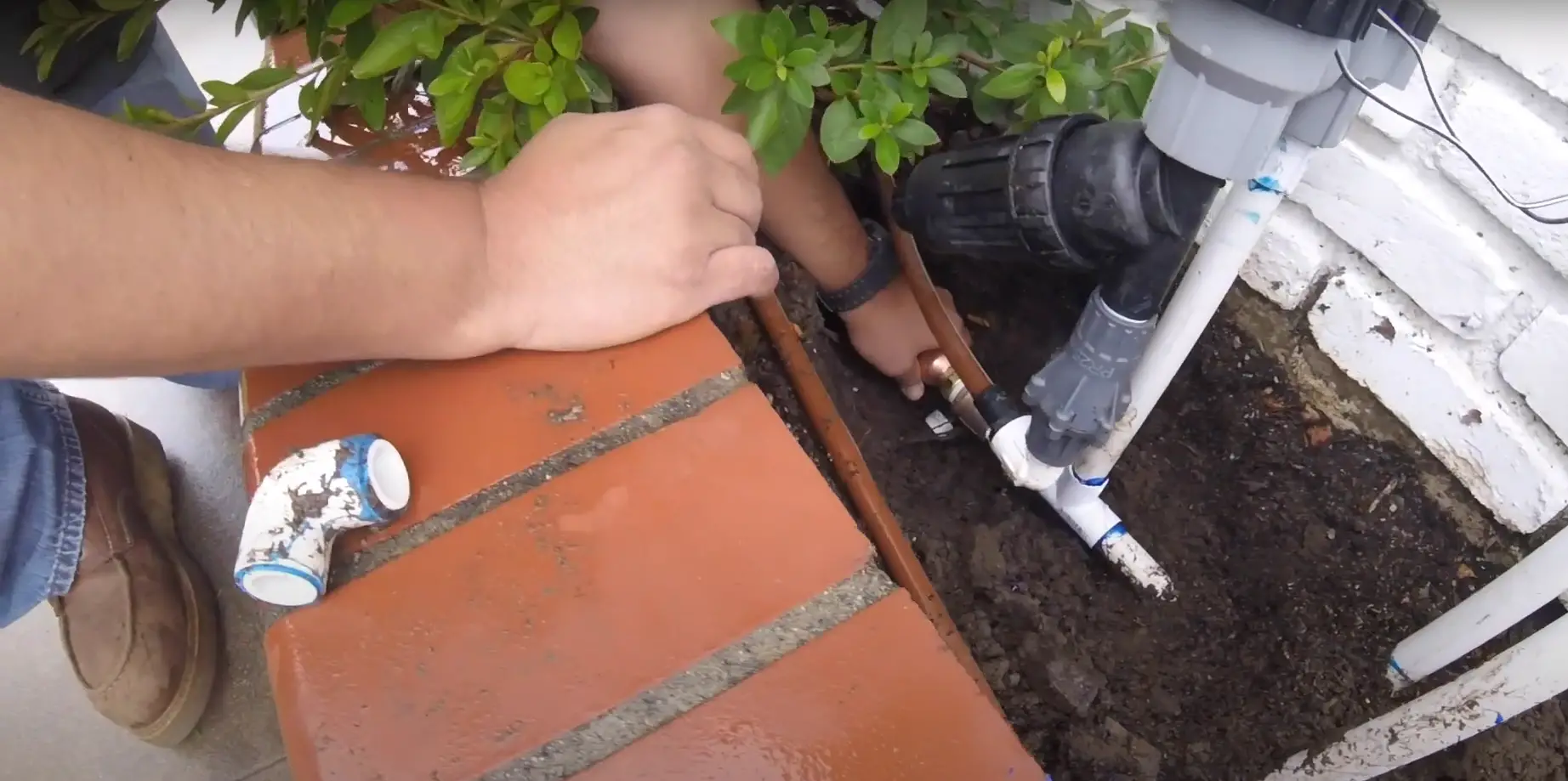
Can I Change The Zones On My Sprinkler System?
Yes, you can easily change the zones on your sprinkler system. Depending on what type of sprinkler system you have, there are different methods for changing the zones.
For a manual system where each zone has its own valve and timer, you will need to physically move the valves and reset the timers. A more convenient option would be an automatic controller that allows you to set different watering times for different zones.
If your sprinkler system still makes loud noises even after replacing parts, it may be time to call in a professional landscaping technician for further inspection and repairs. They will be able to determine the source of the problem and recommend solutions that are best suited for your specific situation. This may involve replacing worn out parts or making adjustments to the system itself.
No matter what type of sprinkler system you have, it’s important that you maintain it regularly and check for any signs of wear and tear. This will help ensure that your sprinkler system works properly and provides effective watering without any unnecessary noise. With the right maintenance, you can keep your sprinkler system running smoothly and enjoy a beautiful green lawn all year round. [5]
Types of Sprinkler Systems
There are several different types of sprinkler systems used for landscaping and gardening. The most common type is an automatic underground irrigation system, which typically consists of a main water line, valves that control the flow of water to various zones in the landscape, and sprinklers or spray heads that distribute the water.
Understanding how each type of sprinkler system works can help you figure out why it might be making loud noises when it changes zones. It’s important to note that all systems should be checked regularly for signs of wear and damage, since this can affect performance.
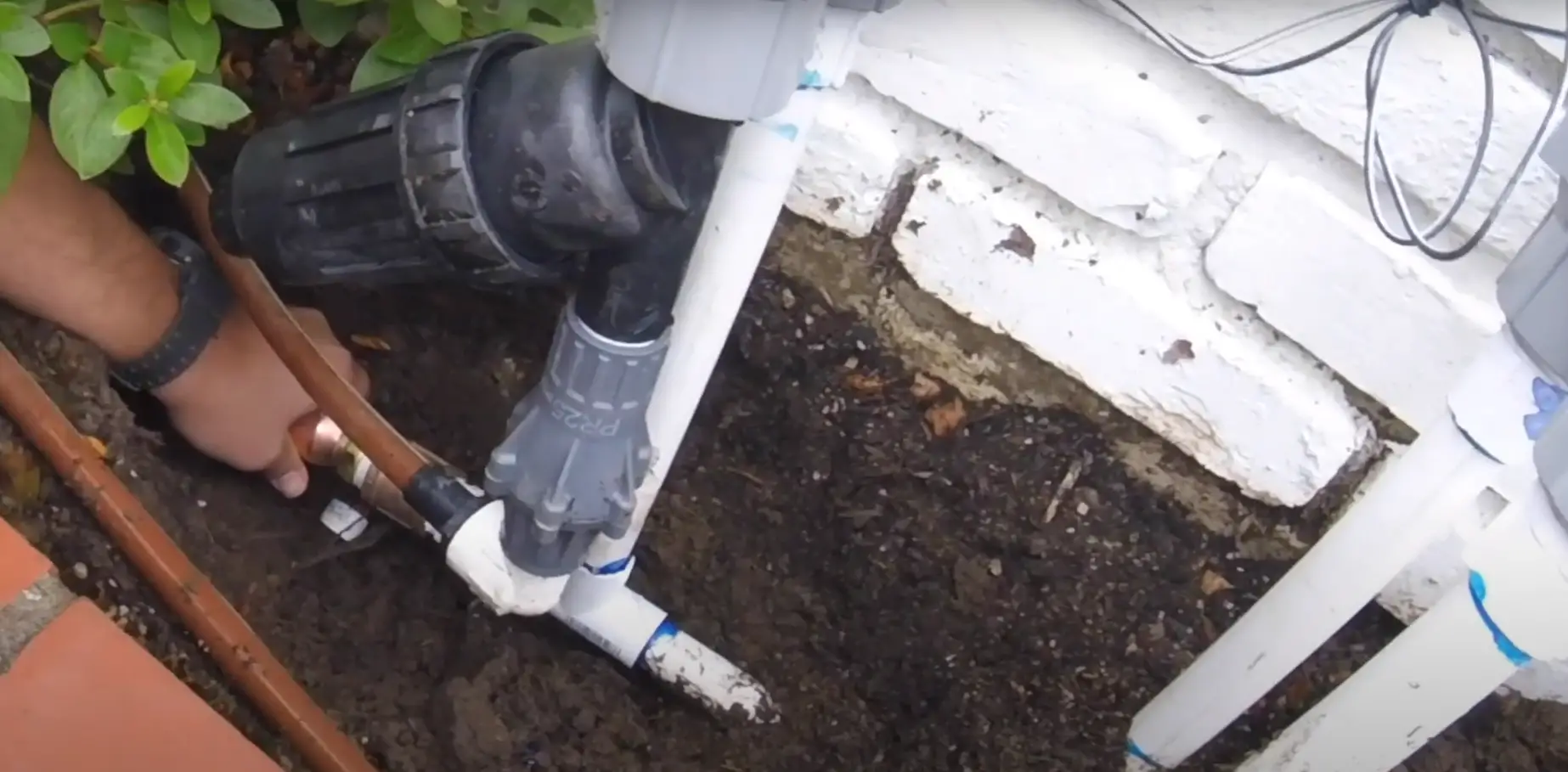
FAQ
Why is my sprinkler system making a loud sound?
Your sprinkler system may be making a loud sound when changing zones due to water hammering. This is caused by the sudden change in pressure when the zone starts and stops, which creates a shockwave type of noise.
How do I stop my sprinkler system from water hammering?
If you are experiencing a loud banging noise when changing zones in your sprinkler system, it is likely due to a phenomenon known as water hammering. Water hammering occurs when the momentum of moving water suddenly changes direction and causes an impact on the pipes inside your sprinkler system. This can cause a loud banging sound that can be disruptive to your home or business environment. Fortunately, there are several steps you can take to reduce or eliminate this issue:
- Adjust the Pressure-Reducing Valve: Installing a pressure-reducing valve (PRV) on the main supply line will help regulate water pressure and minimize any sudden changes in flow direction that cause water hammering. Check with your local irrigation professional to ensure that your PRV is correctly installed.
- Install a Surge Tank: A surge tank, or surge suppressor, is a device designed to absorb the sudden pressure changes caused by valve switching and help reduce water hammering.
- Add Air Chambers: Air chambers are commonly used in irrigation systems to help remove surges caused by water pressure changes, allowing for quieter operation of the sprinkler system.
- Upgrade Your Piping System: If you have an older sprinkler system, consider replacing galvanized pipes with more modern alternatives such as PVC. These materials are better able to withstand sudden pressure changes and will last longer than galvanized piping.
- Increase Flow Rates Slowly: When switching between zones, try to increase the flow rate of water slowly over time. This will help reduce the chances of sudden pressure changes and minimize the risk of water hammering.
How do I fix my sprinkler pressure?
The most common cause of noisy sprinkler systems is a pressure problem. When there is too much or too little water pressure, it can cause the system to become loud and vibrate, causing changes in zones to be louder than normal. To fix this issue, you should check your automatic sprinkler valve for any clogs or blockages that may be restricting the flow of water. You should also check the filters and clean them if necessary. If this does not solve the issue, you may need to adjust the pressure setting on your sprinkler valve to increase or decrease the amount of water pressure flowing through it. Additionally, you can also replace worn out parts such as diaphragms and gaskets which can be done with basic tools and materials. Once your sprinkler pressure is back to normal, you should also check the nozzle alignment in each zone as this can cause a variance in water pressure which can lead to loud noise when changing zones.
Useful Video: Reduce Water hammering in the sprinkler system
Conclusion
In conclusion, if your sprinkler system is making a loud noise when you change zones, the issue could be an improperly adjusted pressure regulator or air in the pipes. Fortunately, these problems can easily be solved by adjusting the pressure regulator and bleeding air from the system using a bleed valve. If these fixes don’t seem to help, then it’s best to have a professional inspect your sprinkler system for possible damage and other issues. With proper care and maintenance, you will soon be able to enjoy your lawn without any loud noises coming from the sprinkler.
References:
- https://www.gofindfix.com/sprinkler-system-makes-loud-noise-when-changing-zones/
- https://homeguides.sfgate.com/noise-problems-lawn-sprinkler-86702.html
- https://gardenguider.com/loud-noise-when-sprinklers-turn-on/
- https://www.moneypit.com/sprinkler-system-makes-loud-noise/
- https://www.irrigationtutorials.com/waterhammer.htm





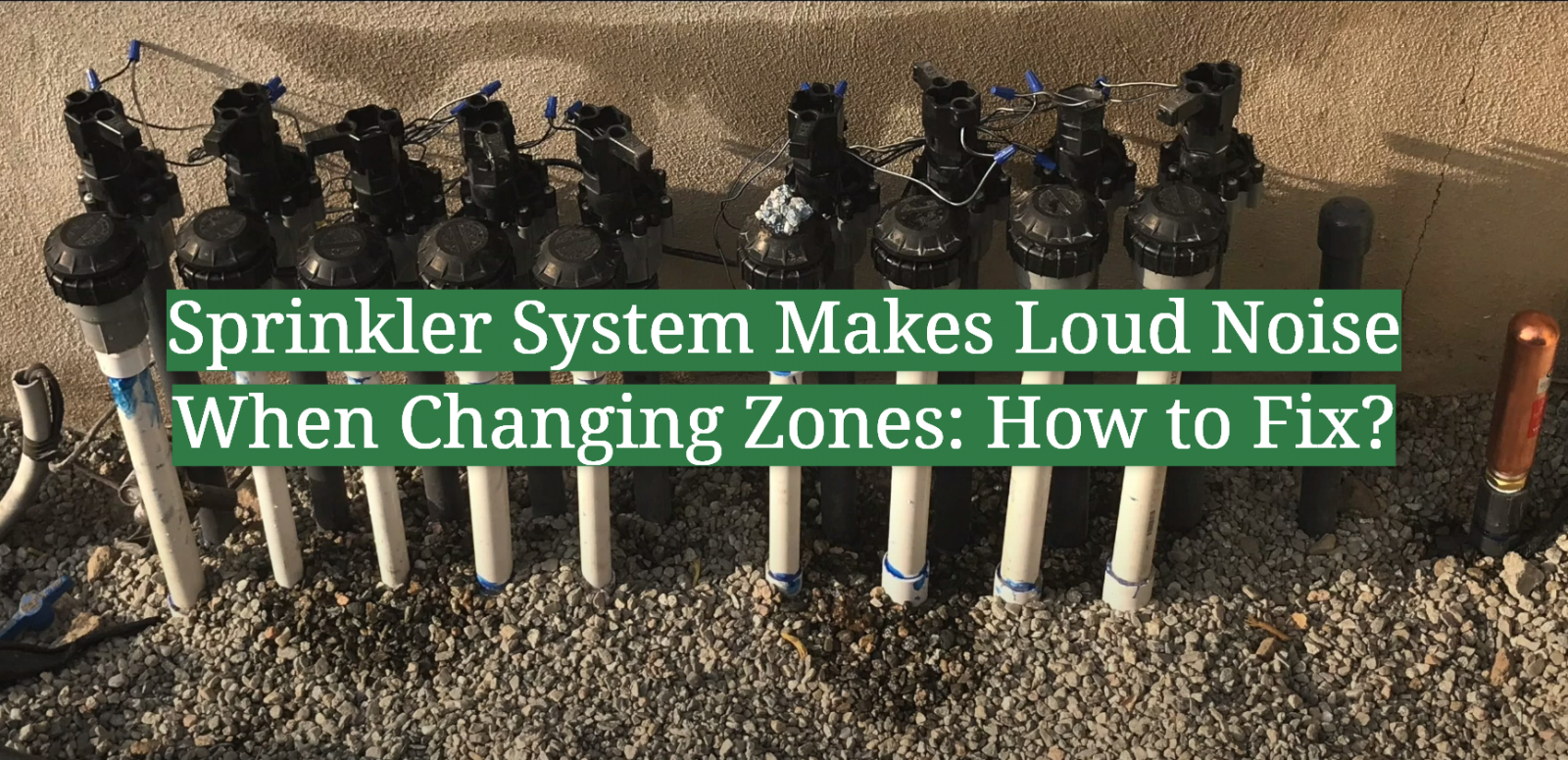

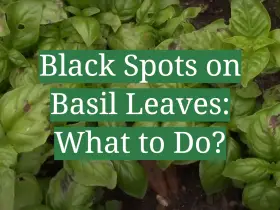


Leave a Reply
View Comments